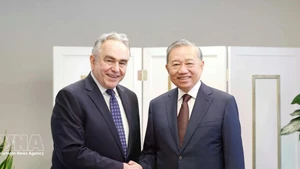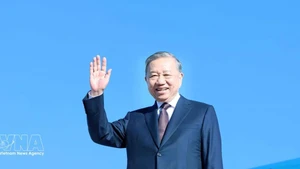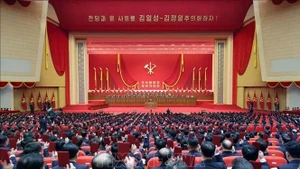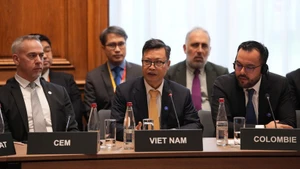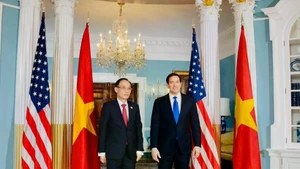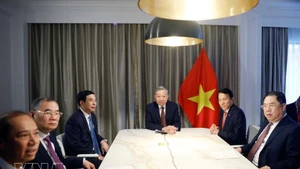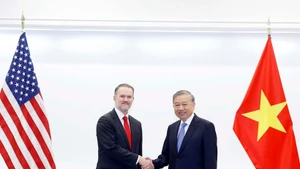Both of the countries place great importance on the rule of law. Therefore, the cooperation between their provides a significant impetus for the prospects of bilateral investment cooperation in key areas.
Since May 2022 when the two countries signed a cooperation agreement between their parliaments, their leaders have consistently strengthened experience exchanges on building and improving legal systems to support socio-economic development, especially in cooperation in two globally significant areas: digital economy and digital society. Vietnam has also been enhancing the sharing of experiences in developing legal frameworks for crucial issues such as the carbon market, green finance mobilisation, and global minimum taxation. The two countries continue to strengthen collaboration in personnel training.
Sharing about the areas of cooperation that could be further strengthened with the support of parliamentary diplomacy in the coming time, Vietnamese Ambassador to Singapore Mai Phuoc Dung stated that during the mutual visits of the wo countries’ leaders in 2022 and 2023, they signed a series of agreements in new fields such as digital economy, green economy, renewable energy, and carbon credits.
Through this upcoming visit, the leaders of the two parliaments will identify legal measures to address challenges and make these partnerships more practical and effective, and contribute to encouraging Singaporean businesses to increase their investment in Vietnam, and possibly Vietnamese firms to invest in Singapore as well, said Dung.
In addition, both sides will continue to promote deeper and more effective cooperation in economics, trade, and investment. The two governments are expanding the Vietnam-Singapore Industrial Park (VSIP) model, while transitioning towards a green, clean, and smart direction, aiming to develop industrial-urban ecosystems, and discussing ways to expand cooperation in areas such as clean energy, wind power development projects, the construction of the ASEAN power grid, and semiconductor.
According to the diplomat, Singaporean leaders have expressed strong interest in developing renewable energy and are ready to support Vietnam, as well as discuss potential collaborative projects in this field, with a goal of exporting renewable energy to Singapore. Notably, carbon credit is an area where the two sides can collaborate, especially as both countries aim to achieve net-zero emissions by 2050.
Associate Prof., Dr. Vu Minh Khuong from the Lee Kuan Yew School of Public Policy under the National University of Singapore said that if Vietnam and Singapore connect, they will form a highly unified economic entity in attracting international investment, particularly in high-tech sectors such as new energy, semiconductor, and biotechnology.
Obviously, Vietnam has potential to make rapid progress in modernising its economy, he stressed.
Chris Leck, Chief International Partnerships Officer at the Agency for Science, Technology & Research (A*STAR), stated that as Vietnam is a rapidly developing economy in Southeast Asia, and Vietnam and Singapore are close partners, the agency is eager to promote cooperation with the country's National Innovation Centre in many areas.
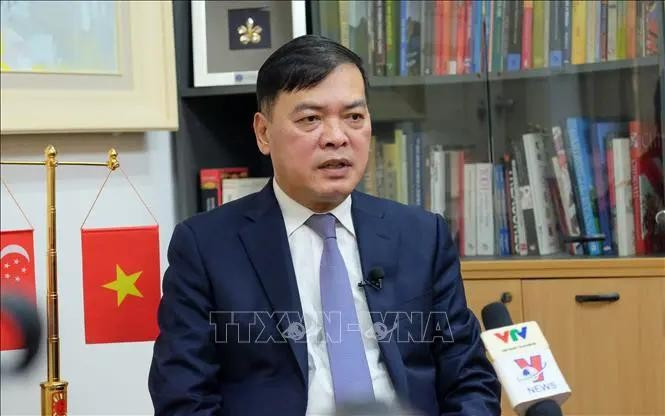
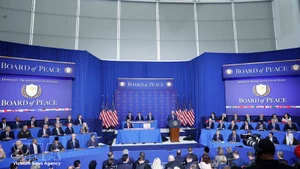
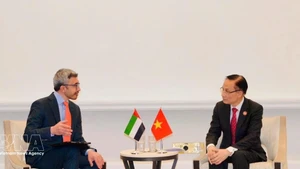
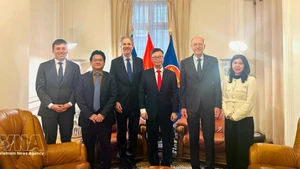
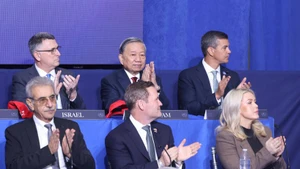
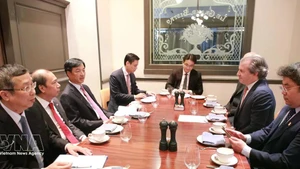
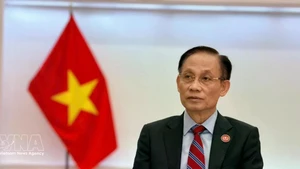
![[In pictures] Party General Secretary To Lam meets US President Donald Trump](https://en-cdn.nhandan.vn/images/dcd63867a0eed4c7753eb4bfb346593abc1ce710dfab8ad1b9aebd75ea6bf930b2ea13e4664779d689ba40aadd80f76d5d05d1208720fd7b0d811ace3a3297321c78cf738400e136e3f2d8790b24d43646e46edbe19517144a88f6ffb0d528f153574a7109328cc0949e4a4c16433c2ff751541639eefe4490518227264cbf8e/vna-potal-tong-bi-thu-to-lam-gap-tong-thong-hoa-ky-donald-trump-8599945.jpg.webp)
